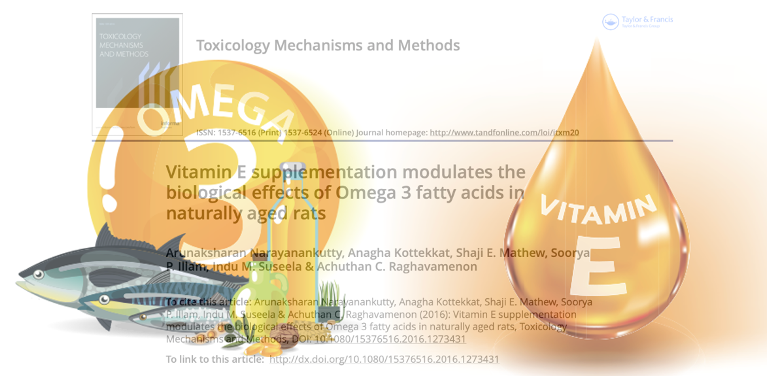Omega-3 fatty acids are a well-known class of nutraceuticals that have been used for years and have established health benefits. However, due to their unsaturated nature, these fatty acids are likely to undergo enzymatic and non-enzymatic peroxidative changes, leading to the generation of molecules such as hydroperoxides and aldehydes. Recently, the oxidation products of these fatty acids have been of increasing concern because they may disrupt the body’s redox balance. Therefore, the efficacy of omega-3 fatty acids in situations where the antioxidant status (e.g., aging) is diminished is always a concern.
Therefore, researchers designed experiments to assess the effects of omega-3 fatty acids (DHA and EPA) together with or without vitamin E on naturally aging rats.
The results of the study found that in rats consuming omega-3 fatty acids alone, the lipid profile was improved, especially in relation to triglyceride and HDL-c levels. In the omega-3 fatty acids and vitamin E consumption group and the vitamin E alone fed group, antioxidant parameters were improved with a concomitant reduction in the lipid peroxidation products. It was shown that in the group consuming omega-3 fatty acids with vitamin E, the hepatoprotective and antioxidant properties were evident, especially in the redox status of brain tissue.
Taken together, vitamin E may have reduced the peroxidation of omega-3 fatty acids, thereby allowing their synergistic effects. Therefore, the use of vitamin E along with omega-3 fatty acids may be beneficial for aging conditions.

Narayanankutty, A., Kottekkat, A., Mathew, S. E., Illam, S. P., Suseela, I. M., & Raghavamenon, A. C. (2017). Vitamin E supplementation modulates the biological effects of omega-3 fatty acids in naturally aged rats. Toxicology mechanisms and methods, 27(3), 207-214. [Link]
